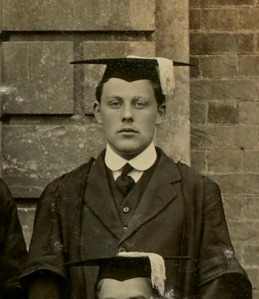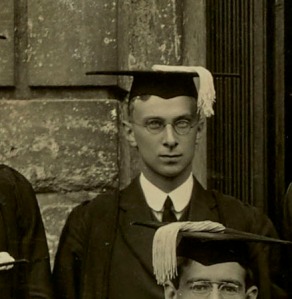|
The Hon. Proposer, A. H. Bennett, said that women wished for the franchise, and it would be good for the country to grant it. A peaceful agitation had gone on for forty years up till 1906, and since that time the militant movement had brought the question into such prominence that the Government was in danger of splitting on it. Anti-suffragist women belonged chiefly to the upper classes, whereas it was the underpaid woman wage-earner who chiefly required the vote. The White Slave Trade provided an example of an evil long neglected by men. Referring to the arguments against Woman’s Suffrage, the honourable member rather unwisely ventured on a discussion of the respective functions of the sexes, and brought down upon himself the laughter of the House. In conclusion, he pointed to the grant of the municipal vote to women as a precedent which justified a further advance, and urged that the grant of the franchise would be generally beneficial while not removing women from the domestic sphere. |
|
|
The Hon. Opposer, G. H. S. Boas, began with a sweeping quotation against the whole sex of women. He went on to explain that he did not think women incapable of going into politics, but he doubted the advisability of allowing them to do so. He then quoted some gems of rhetoric heard at an anti-suffrage meeting as an example of the workings of the female mind in politics, and pointed to the suffragette of the cartoon as indication that women would lose their charm if they took to them. If the same privileges were given to all, chivalry, as instanced at the sinking of the Titanic, would disappear; while on the other hand the position of men and women could never be completely reversed. After foreshadowing the break-up of family life, the honourable member proceeded to refer with a pleasing mixture of metaphor to the “picture which is thrust down our throats” in the nursery-the picture of a knight rescuing a captured lady from a dragon; and he convulsed the House by a delightful vision of the knight, as a parliamentary candidate, bargaining for the lady’s vote at the next election as the price of her release. Finally, he argued that men ought to have privileges in return for those which they grant to women. |
|
G. H. C. Adams was in sympathy with the motion, but not with the proposer, owing to the support given to militancy by that gentleman in private life. The Reform Bill of 1832 might have been won by violence, but men would not stand this kind of thing from women. The honourable member then described in his most inimitable manner the supposed maxims of Mrs. Pankhurst and Miss Annie Kenney, and gave an account of his instantaneous conversion at a Trafalgar Square meeting last holidays by a “creature” in a Homburg hat and spats. He went on to suggest that the hon. opposer had obtained his ideas of women from Shakespeare, who was out of date, or from a certain Latin Verse book, which was absurd. Taxation without representation was unfair. Man was keeping a position to which he had no longer any right; while women were debarred from most occupations except those of governess and typist. Quite the speech of the evening. |
|
|
R. S. P. Mackarness, in a promising maiden speech, instanced the municipal vote of women. These electors were about a million in number; and if given the Parliamentary franchise would secure the proper representation of women without swamping the male electorate. |
|
M.T. Colchester saw no reason why women should vote in the elections for M.P.s, and brought forward the novel suggestion of a House of Ladies. He proposed to keep them quiet by sending them for discussion measures such as the White Slave Bill or the servant-tax proposals of the Insurance Act. A House of Commons containing men and women would become a pandemonium. Originality is always welcome: we were grat |
|
|
L. A. Westmore (Hon. Sec.) objected to this proposal as inadequate and complicated. He did not regard the agitation of the last forty years or the present militant policy as conclusive evidence of an authoritative demand for the vote; and he declined to regard the possession of a vote as anything but a privilege. It ought not to be claimed as a right. Woman Suffrage would involve Adult Suffrage within fifty years; but the number of opinions so taken might increase their aggregate value. The hon. proposer had spoken of the physical force argument as the chief plank of the opposition to Woman Suffrage; but a more serious objection was the present divorce between politics and public control. This was conducive to revolution, and might be cited as an argument against the extension of the franchise. At this point the honourable member, who had so far sat on the hedge with a considerable degree of success, came down definitely on the side of the women. The forty years’ agitation had probably engendered a civic consciousness in women. An interesting view had been put forward that the fratricidal struggle for wealth since the industrial revolution was due to the exclusion of women from public affairs: they demanded money for their personal embellishment, which was their only interest. Woman’s instinct of staying behind and tidying up might lead to more orderly legislation. |
|
|
A. C. Nugee, whose arguments we found a little difficult to follow, considered that the lives of Queen Elizabeth and Queen Victoria demonstrated women to be capable of holding authority. The suffragettes, however, whom he politely described as wild beasts, were alienating public opinion as shewn in the attitude of London crowds; and therefore, owing to their excessive violence in asking for the vote, women should not be given it. |
|
S. J. S. Groves demurred to the assumption that the suffragettes are the only women who want the vote, whereas they are actually the dregs of the movement. The idea of chivalry as a serious argument against Woman Suffrage no longer worked. The speaker also objected to the statement that women could not fight for their country, and recalled Florence Nightingale and many women in the present war as doing unobtrusive but none the less important work for their own and other people’s countries. The vote should be given to taxpayers; adult suffrage was undesirable, and would not necessarily follow |
|
M. E. E. Fenwick, a new member, seemed bashful, and hesitated. He appeared to be saying that women were inferior to men, and should confine themselves to doing their duty to their homes and husbands. |
|
|
A. F. Blyth, on rising to speak for the first time, was apparently overcome by his sense of humour, and communicated his merriment to the House for the space of some minutes. At length recovering his power of articulation, he proceeded to calculate the numbers of women in fractions of men; and arguing from the numerical superiority of the women, supported the extension of the franchise. There was no reason why women should be incapable of holding sensible views on politics; and in any case large political influence had been given to the lower orders. |
|
C.H.B. Slocock saw no reason to suppose that if women got the vote they would become immersed in politics. The ordinary man confined himself to voting at infrequently occurring General Elections, and going with his wife to occasional political meetings. Servants had to pay the heavy tax of 3d. a week off their wages; while owing to the number of their unearned incomes, women probably paid more taxes than men |
|
| The proposer and opposer then replied, and on being put to the vote the motion was lost in the Lower House by show of hands.
In the Upper House it was carried by 8 votes to 4 |








